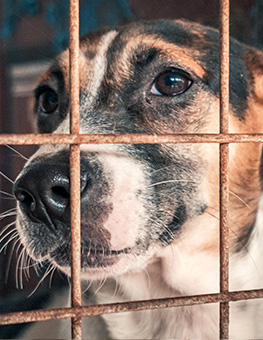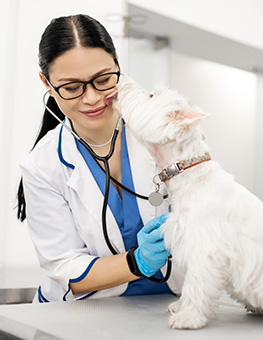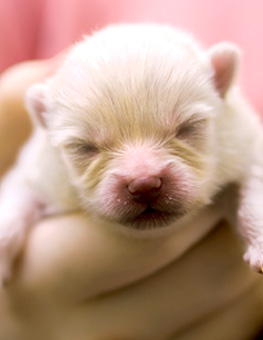Caring for a Pregnant Dog
Caring for a pregnant dog has many challenges, but in the end, it is all worth the extra effort.
Hopefully, you were able to get your dog examined by a veterinarian and updated all vaccinations before the pregnancy. This can be vital protection against many diseases from being passed down to the puppies. Intestinal parasites can also be transmitted from mom to the puppies, so it is very important to have your dog checked and dewormed if any are present before the pregnancy. Monthly heartworm preventatives should be continued during the pregnancy. This will protect the mom against heartworms and some other parasites. It is very important to prevent fleas and ticks from spreading disease to your pregnant dog, but topical preventatives are not recommended to be used on pregnant pets. However, you can use premise sprays in the home and yard to control fleas and ticks.
Make sure there is an insect growth regulator (IGR) like methoprene in the product so an infestation in the home can be prevented. Once mom has given birth, you can start to apply the topical product on her again. It is not recommended to apply anything to the newborn puppies, but by protecting mom and the environment, you will help protect them as well.
Pregnant dogs require more nutrition and calories in later trimesters and especially during the nursing stage. The biggest mistake you can make is over feeding your pregnant dog. It is important that she does not get fat, but does get the extra nutrients. Once the puppies are born, let the new mom eat as much as she wants, as it takes a lot of energy to produce enough milk for all of the puppies. It is a good idea to start switching the diet over to good puppy food, but do it slowly so the soon-to-be mom wont develop stomach problems from the extra protein and fat puppy food supplies. Begin switching the diet during the last 2 weeks before the impending birth. Always have fresh water available. It is vital the pregnant mom remains well hydrated and offering fresh water can prevent dehydration.
You should notice an increased appetite later in pregnancy, but it will probably decrease right before giving birth. If you start taking the soon-to-be moms rectal temperature, you should see a decrease by one degree right before giving birth. With this in mind, a dog’s optimal body temperature is 101 degrees, but may fall to 100 degrees. When/if it does, birthing should take place within 24 hours. That is normally the time the appetite diminishes and your dog may not want to eat at all that day.
Make sure your pregnant dog’s diet is the best available. Though you may think it is wise to supplement your pregnant dog with extra vitamins and minerals like calcium, this is not recommended. This can actually increase the chances of birthing complications. Once the puppies are born, supplements may be needed, but this should be discussed with your veterinarian.
Schedule a vet visit 4-5 weeks into the pregnancy so mom can be examined and an ultrasound can be done to make sure mom and all the puppies are Healthy and Happy.
Make sure to visit our puppy center for great information on your puppies’ health.

















